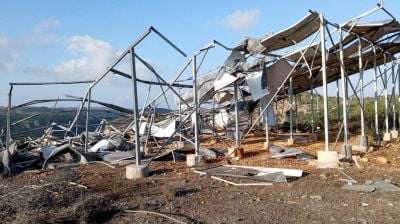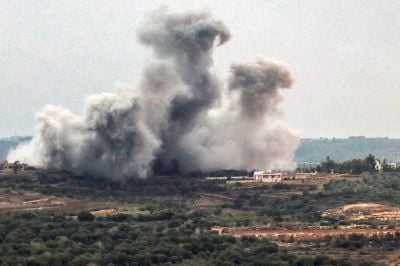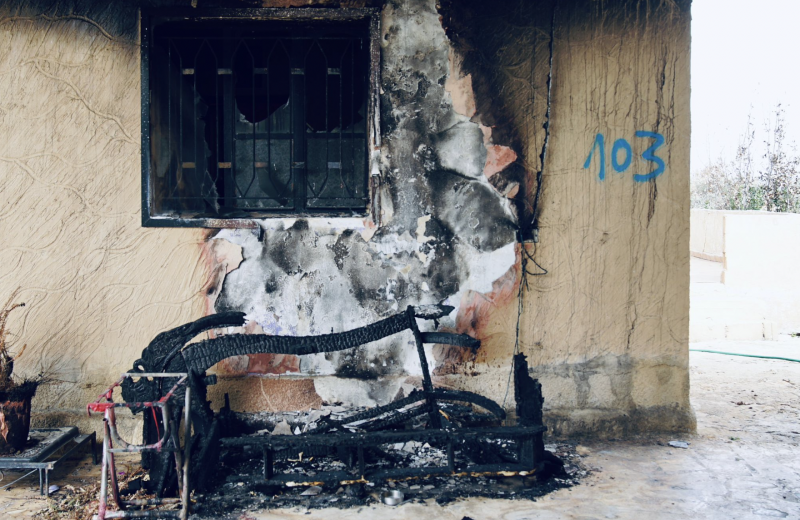
Aftermath of Israeli shelling in southern Lebanon, Nov. 25, 2023. (Credit: Olivia Le Poidevin/L'Orient Today)
BEIRUT — Last Christmas, inside Wadih Diab’s home in Ain Ibl, a fireplace crackled with dancing flames. Above the mantelpiece, green tinsel garland intertwined with sparkling ornaments. A Christmas tree stood adorned with red baubles and festive ribbons and bows.
Today, he says, the fireplace lies in ruins, with shattered walls and debris strewn across the house. What used to be rooms filled with life and memories inside Diab’s home, which was hit by a rocket, are now crumbled and broken.
The 34-year-old owns a restaurant in Ain Ibl, which lies around 90 kilometers south of Beirut and is one of several Christian villages along southern Lebanon’s border with Israel.
There, Israeli bombings and cross-border fighting have become all too familiar since October, when an unprecedented attack by Hamas on Israel was followed by an all-out Israeli bombardment of Gaza. The fighting also spilled over to Lebanon, where Hezbollah and Israel have engaged in deadly cross-border fire for the past two months.
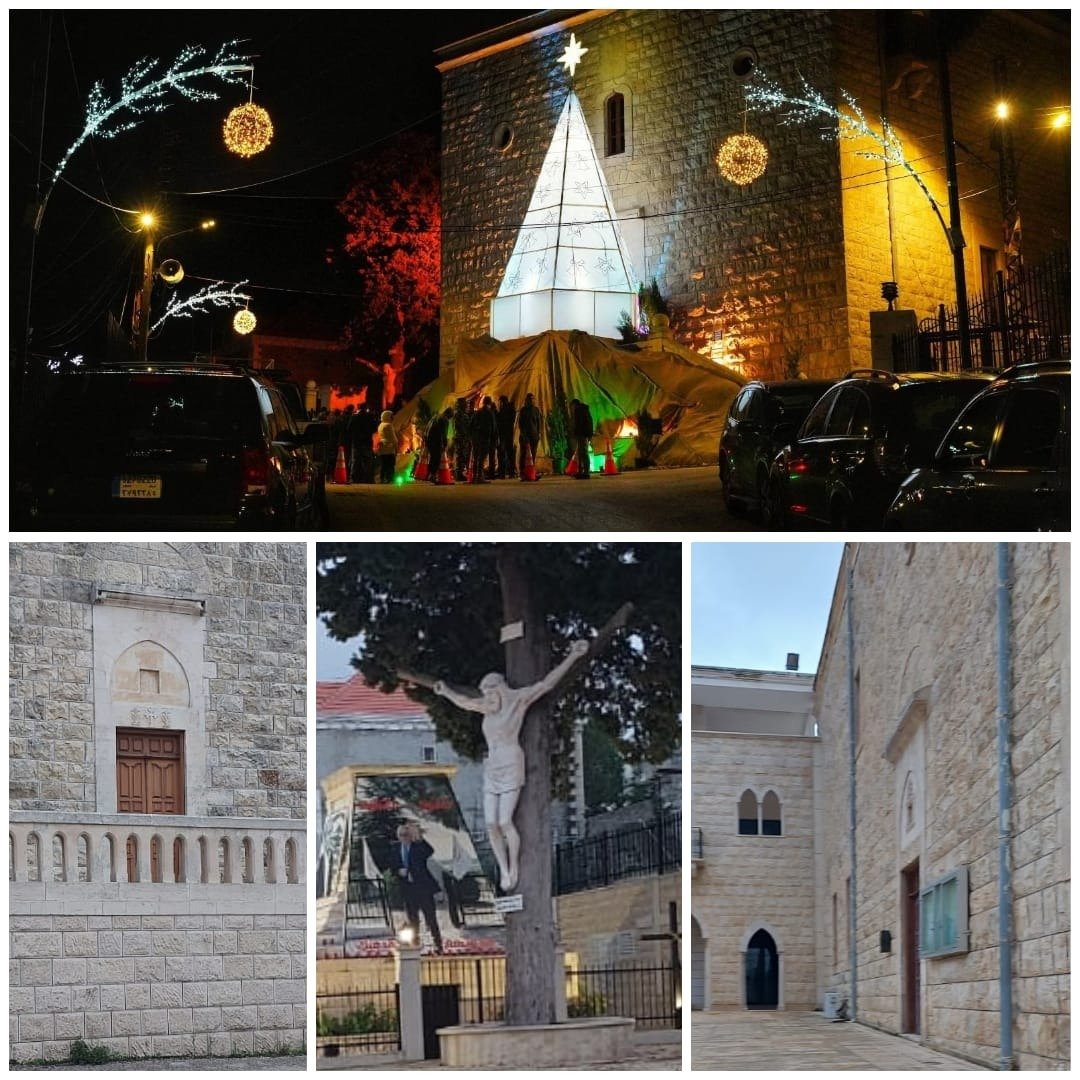 (Top) Christmas decorations in Ain Ibl in December 2022. (Courtesy of: Rakan Diab). (Bottom) Ain Ibl's main church without Christmas decorations in December 2023. (Courtesy of: Wadih Diab)
(Top) Christmas decorations in Ain Ibl in December 2022. (Courtesy of: Rakan Diab). (Bottom) Ain Ibl's main church without Christmas decorations in December 2023. (Courtesy of: Wadih Diab)
Amid the bloodshed, Christmas this year is a somber affair, marked by an overwhelming sense of sadness and loss.
One gloomy evening, he drives through the village that, last December, resonated with festive decorations. He sends a video of his silent tour through the streets.
The village square, which used to be the heart of communal celebrations with a majestic Christmas tree, now stands abandoned and desolate in Diab’s video message.
Some homes, once adorned with twinkling lights and decorations, now bear the scars of war — broken windows and cracked walls.
“There is no one here, no decorations, nothing,” he says. Diab’s restaurant is also closed this year.
“My restaurant, embellished with Christmas decorations, used to be packed all the time during this season last year,” he says. “I miss the festive atmosphere of decorated shops, I miss Christmas drinks and going out.”
Conjuring the festive spirit, despite it all
“This holiday is supposed to be a time to celebrate happiness, the birth of a new life, of a new hope,” says Rita Elias, who resides in Rmaish, a village located south of Ain Ibl.
Rmaish is the largest parish of the Maronite diocese of Sour.
Along with her husband and seven-year-old son, Elias decided to return to Rmaish during the Israel-Hamas truce at the end of November, hoping the ceasefire would be permanent. She had been seeking refuge at several relatives’ homes in Beirut for over a month.
“Life in the village is different,” she says. “The essence of the [Christmas] holiday lies in welcoming people into our homes. Here, everyone knows everyone and people visit each other all the time.”
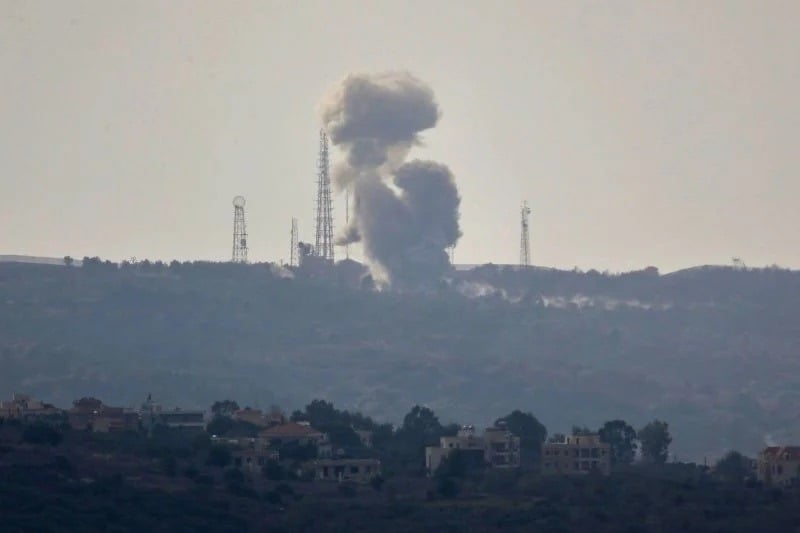 A cloud of smoke after an Israeli strike near the village of Alma al-Shaab, in southern Lebanon, on Nov. 13, 2023. (Credit: AFP)
A cloud of smoke after an Israeli strike near the village of Alma al-Shaab, in southern Lebanon, on Nov. 13, 2023. (Credit: AFP)
“I struggled to find that in Beirut—you need to schedule appointments to visit people there,” she adds.
In normal circumstances during this time of the year, “the village square would be swarming with people trying to buy gifts and clothes, to the point where you would struggle to cut through,” Elias says.
“Now, there are almost no one at all, most people have left,” she adds. “Those who live here are not really living, we are in a state of war, our schools are shut, our work is on standby, we don’t have a normal holiday.”
Despite this year’s subdued celebration, Elias says she and her family are determined to conjure the festive spirit.
Her son has been distance-learning since most schools in the south are closed. With his help, she put up a Christmas tree, beneath which they set up a “humble nativity scene,” says Elias, who also plays Christmas hymns on their speakers “to keep the holiday mood alive,” amid the “consistent” sounds of bombs outside.
In an empty church, prayers carry on
In Alma al-Shaab, a village in Sour district, Father Maroun Ghaffari says he now presides over an almost empty church.
“The essence of the holiday, which lies in the laughter of children and the gathering of families, is absent this year,” he laments.
“Around three-quarters of the residents have fled,” Alma al-Shaab mayor Jean Ghaffari tells L’Orient Today, adding that “only around 45 families, consisting of not more than two to three members [each], are left.”
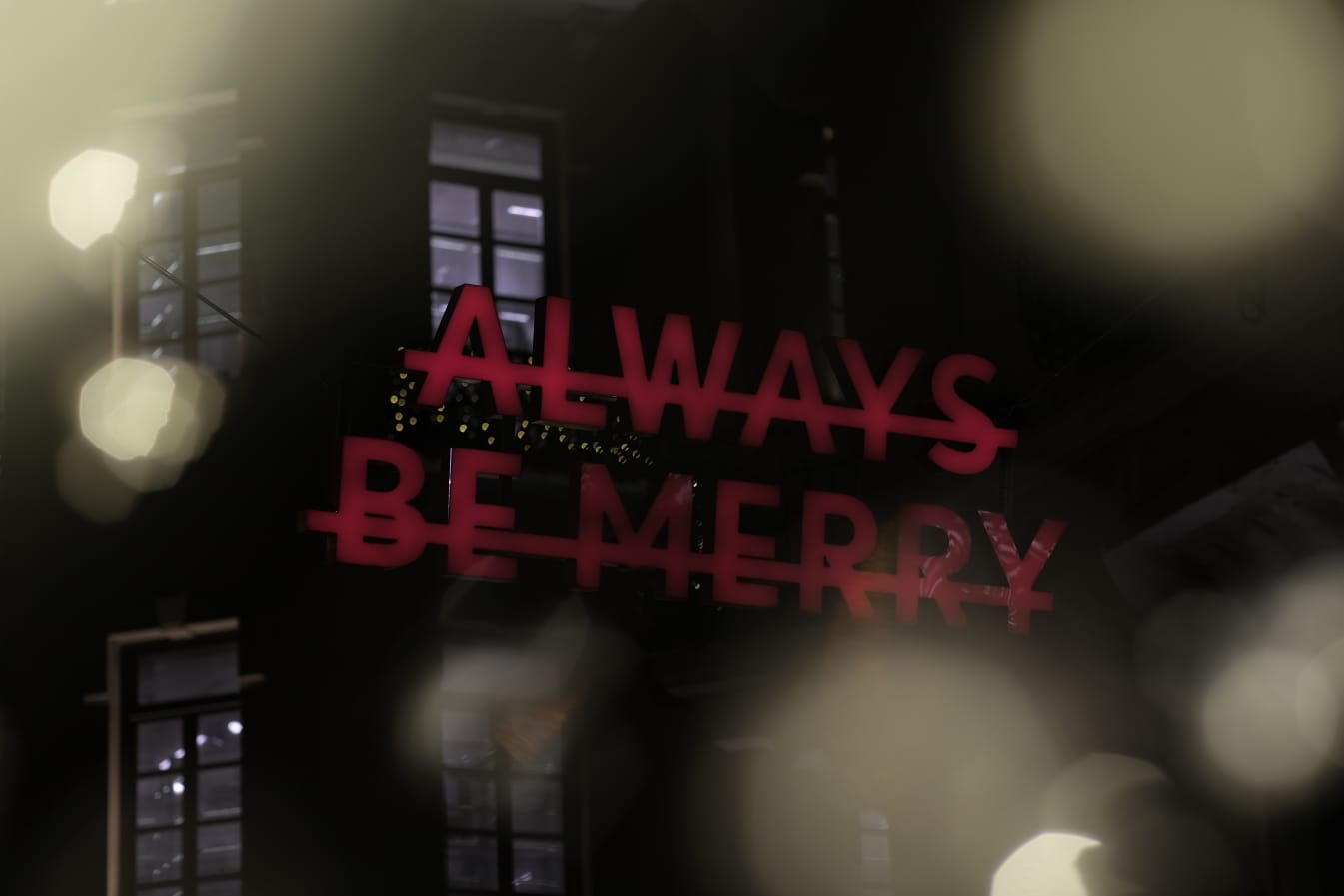 Christmas decorations in downtown Beirut, December 2022. (Credit: João Sousa/L'Orient Today/File photo)
Christmas decorations in downtown Beirut, December 2022. (Credit: João Sousa/L'Orient Today/File photo)
“Most of the people who stayed behind are elderly who do not have the means to [leave], or do not want to move elsewhere,” mayor Ghaffari says. “Their children did not necessarily want to leave them behind but some had no other choice.”
The traditional “Christmas Village” in Alma al-Shaab, a 15-day celebration that attracts visitors from various southern villages and cities, is also absent this year, Ghaffari says.
According to Father Maroun, villagers who live in Beirut for work usually join their families in Alma al-Shaab in December. This year, however, the village is hauntingly quiet, and those who attempt to return for visits often turn back upon hearing the sounds of shelling.
He has been holding prayers on Sunday as normal, despite it being “almost empty, with the few who show up being elderly while the rest are scared to leave their houses.”
“Christmas is sad,” Father Maroun says. “Everything and everyone who creates the spirit of Christmas is not here this year.”
A holiday pockmarked by shelling
Back in Ain Ibl, the sound of an overhead aircraft humming interrupts Jeanette Mikhail al-Hage, as she shares, over the phone, the distressing reality of celebrating Christmas in war-torn south Lebanon.
“Here they go again, the fighting will start again now,” the 63-year-old grandmother laments. “It seems clear that we won’t be able to celebrate [Christmas] in my home this year.”
The constant shelling is just several hundred meters from her home.
“This war is being forced on us; we have nothing to do with it,” she says. Instead of the customary family gatherings in her home, she contemplates celebrating elsewhere, fearing for the safety of her loved ones.
She says her daughter in Rmaish, even closer to the border, remains in harm's way.
“She usually comes with her children at the beginning of December so that we put up a [Christmas] tree and decorate it together,” says Hage. She has no tree this year.
She says she has decided to stay in Ain Ibl for now, because “my home in the south is my palace, I can’t feel comfortable anywhere else.” On top of that, she and her husband run convenience shops beneath the house, and they don’t want to leave them.
“What kind of celebration will it be when we know that our homes and lives are in danger?” she asks.
“I am psychologically fatigued.”
Diab, himself still in Ain Ibl, says he, too, misses his family.
He, his wife and nine-month-old daughter were lucky not to have been home the moment it was struck by a rocket on Nov. 23.
But the near-miss prompted him to send his wife and baby to Beirut, while he stayed behind to protect the village “against looting.”
“We can’t leave the area totally empty,” he says. He plans to go up to Beirut on Christmas Day but then return to the village, back in danger.
“We miss our families, our women, our children, the holiday is nothing without them.”
